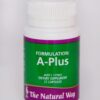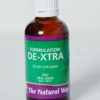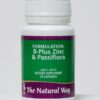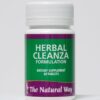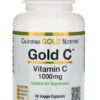Diet cola could increase your risk of death
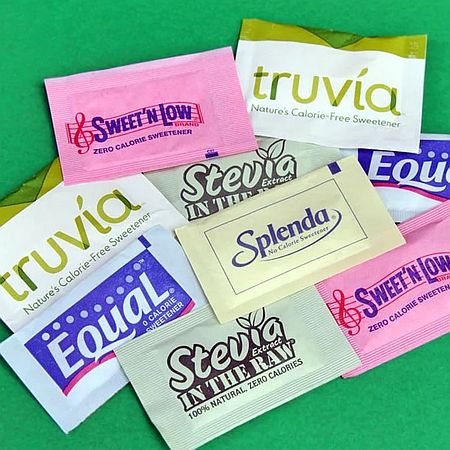
‘It is peculiar to think that someone actually thought that pulling sugar out of food/drinks and replacing it with chemicals was a good idea. WOW – obviously some scientist worked out a great way to make money from vulnerable people desperate to lose weight. Do your best to avoid this stuff! I mean, for a start, they are chemical sweeteners (that’s right made in a laboratory) and really, any excess chemicals in your body just adds to your toxic load, slows down your liver function and does goodness knows what else to your health. We have all heard the rumours about artificial sweeteners being linked to an increased risk of cancer, auto-immune disease, nervous system dysfunction…the list goes on.
The scary thing is that artificial sweeteners are in many ‘diet’ soft drinks and even weight loss shakes. However, there is now growing evidence showing that this stuff ‘kills’ the good bacteria in your gut which leads to a host of health issues including weight gain. The other problem is that that diet soft-drinks (and other artificially sweetened foods) over-stimulate your taste buds to ‘want’ something sweet due to the roller-coaster effect they have on your blood sugar levels….a weight loss disaster.’ says Sue Raward – The Natural Way Naturopath – June 2015.
A new study has unveiled some extremely worrying statistics for the health of diet cola drinkers.
News.com.au article on 13 September 2022:

With many Australians more health-conscious than ever before, sugar-free food and drink products have been soaring in popularity.
Supermarket shelves are lined with ‘diet’ and ‘lite’ options of our favourite beverages – but are we really making the right choice by opting for the seemingly “healthier” option?
A new study claims that diet cola drinks may actually be just as bad – if not worse – for you than a good old fashioned “normal” cola.
Scientists at the French National Institute for Health say consumers should not assume that drinks with artificial sweeteners are a safe swap for sugar. In a trial published in the British Medical Journal, https://www.bmj.com/content/378/bmj-2022-071204 which spanned 12 years and involved 103,000 people, researchers found that total artificial sweetener intake was associated with increased risk of fatal conditions such as heart disease and stroke.
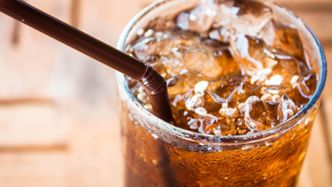
According to the study, less than a can a day could be enough to cause serious health damage.
“The findings from this large scale prospective cohort study suggest a potential direct association between higher artificial sweetener consumption (especially aspartame, acesulfame potassium and sucralose) and increased cardiovascular disease risk,” wrote Dr Mathilde Touvier, lead author on the study.
“Artificial sweeteners are present in thousands of food and beverage brands worldwide.
“However, they remain a controversial topic and are currently being re-evaluated by the European Food Safety Authority, the World Health Organisation and other health agencies,” she wrote.
The study reported that 77.6mg of sweetener per day was the average for a “high consumer” and 7.5mg per day was low.

An average diet soft drink contains 42mg per 100ml, so around 140mg per can.
This would mean that as little as half a can of diet cola could have negative effects on health.
The data collected from 130,000 French citizens found that a third of people consume sugar-free alternatives – which contain aspartame, sucralose and acesulfame potassium – regularly.
“The harmful effects of added sugars have been established for several chronic diseases, leading food industries to use artificial sweeteners as alternatives in a wide range of foods and beverages,” Dr Touvier said.
“These food additives, consumed daily by millions of people, should not be considered a healthy and safe alternative to sugar.”
Those consuming sweeteners above the median had a heart disease rate of 346 per 100,000 – 10 per cent higher than the average rate of 314 per 100,000 for those not consuming sweeteners.
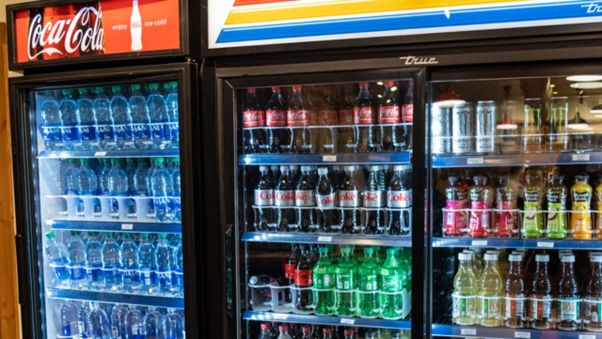
Their stroke rate was also higher – 195 compared to 150, which is 30 per cent higher.
Many food and drink products in Australia use a range of sugar-free alternatives.
“Fizzy drinks, both sugar-sweetened and those using sweeteners, may still cause dental problems,” said the NSW Health https://www.health.nsw.gov.au/heal/Pages/sweeteners.aspx website.
“Water is the best choice to drink. Food and drinks that contain a mixture of sweeteners and sugars are lower in sugar, but they can still contribute to excess energy (kilojoule or calorie) intake.”
We at The Natural Way agree absolutely!

